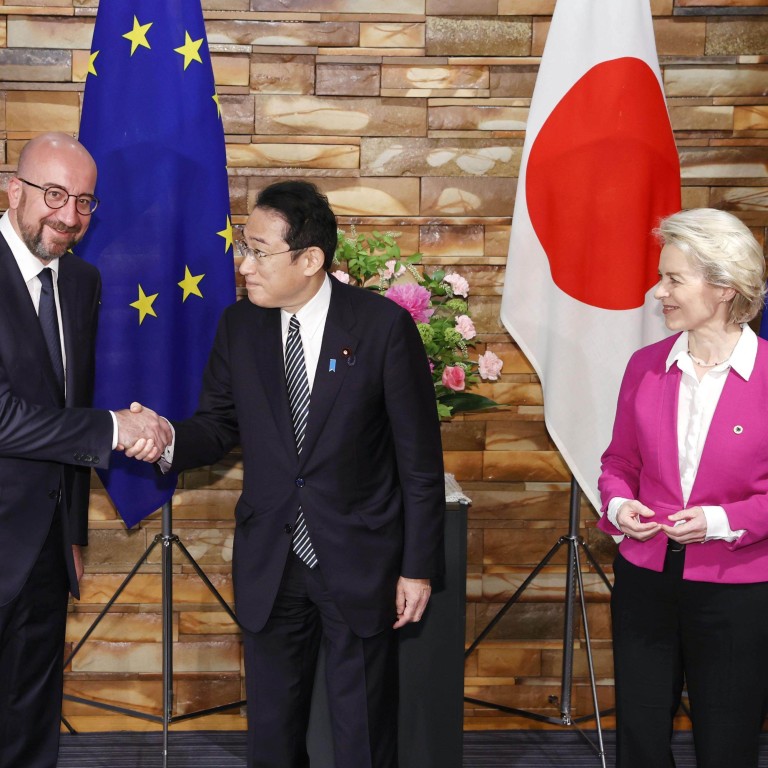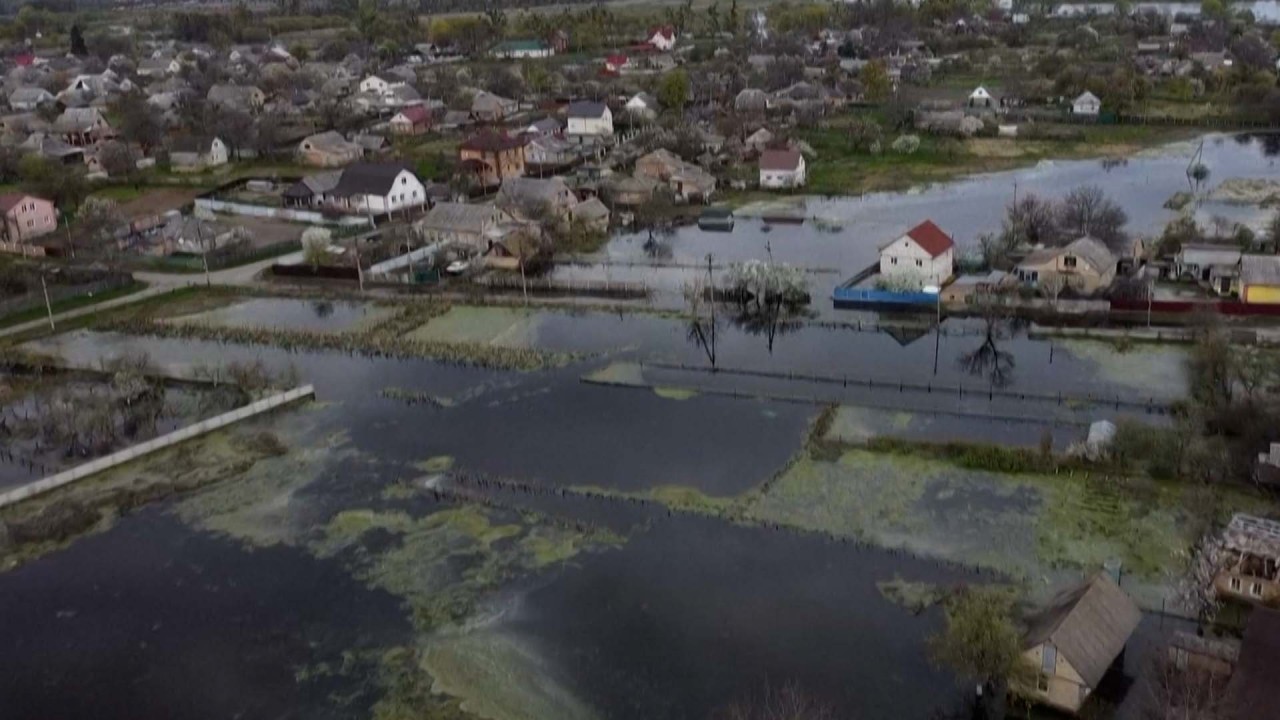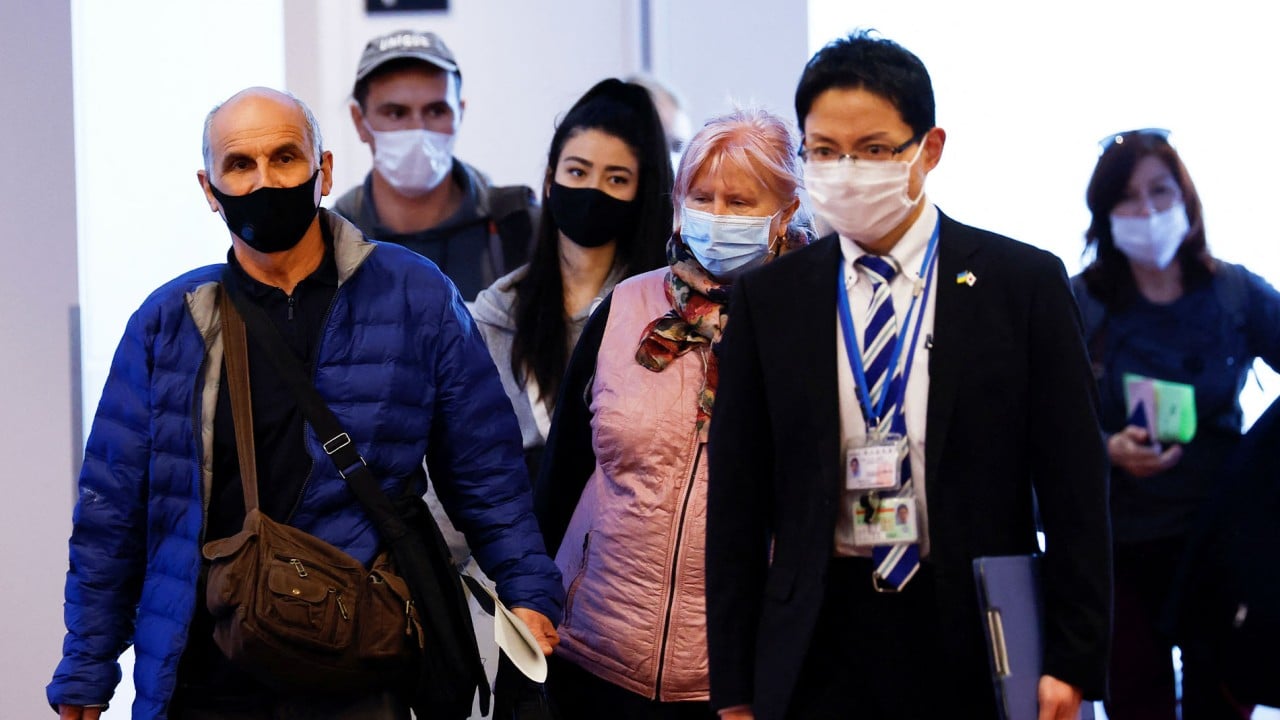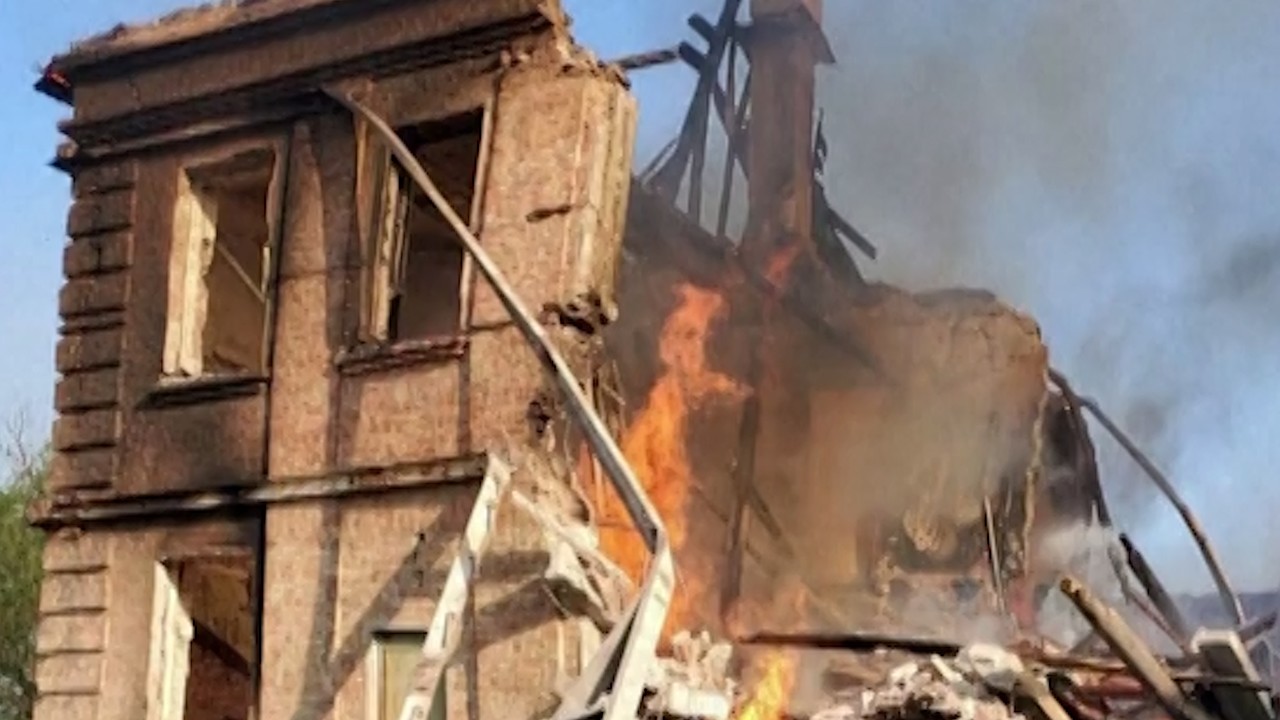
China linked to Russian aggression as EU and Japan vow to work together to counter Beijing
- Commission President Ursula von der Leyen says Russia’s ‘worrying’ pact with China threatens to bring about a new and arbritary international order
- The two sides pledge to work more closely on political and security matters, including in areas such as Hong Kong and Xinjiang
The bulk of discussions revolved around Russia and the coordinated response to the invasion.
US spy chiefs defend Russia-Ukraine intelligence, say China is tougher to assess
“We will continue to provide coordinated political, financial, material and humanitarian support to Ukraine. We recognise that Russia’s illegal aggression against Ukraine shakes the rules-based international order and generates economic disruption globally, affecting partners around the world,” they said in a long joint statement.
But underlying almost everything in the statement and subsequent press conferences was China.
Charles Michel, the European Council President, called on China to “stand up and defend the multilateral system that it has benefited from in developing its country”.
It hit out at China’s militarisation of the East and South China Seas, calling for a “a free and open Indo-Pacific, which is inclusive and based on the rule of law and democratic values, as well as unconstrained by coercion”.
The pair also discussed Taiwan, calling for “the peaceful resolution of cross-Strait issues”.
“We strongly oppose any unilateral attempt to change the status quo by force, regardless of the location, as a serious threat to the entire international order. We will enhance cooperation for a free and open Indo-Pacific,” the statement continued.
They established a new “digital partnership” – akin to the EU’s existing trade and technology council with the United States – which will focus on “delivering concrete results” on collaborative projects around key technologies, including 5G and 6G, artificial intelligence and semiconductors.
The aim of both partnerships – as well as a nascent EU-Indian council established this month – is for democracies to set the rules for the technologies of the future.
‘Japan is feeling anxious’ as Biden’s visit coincides with US’ IPEF launch
“We emphasise that the design, development, governance, and use of technology must be guided by democratic values and respect for international law and universal human rights and that technology should not be misused or abused for activities to threaten human rights such as authoritarian surveillance and oppression,” the statement read.
The EU and US will meet in the suburbs of Paris next Sunday and Monday to advance their own trade and technology council.
They will discuss items like export controls and a nascent, US-led idea for outbound-investment screening that would ban companies from both jurisdictions from investing in certain sectors.
Both the partnerships with the US and Japan have been “galvanised” by the war, EU officials have said.
“Jolted by Russia’s brutal war against Ukraine, the Americans and Europeans seem to be setting a joint leadership agenda in democratic technology that deepens their strategic interdependence and hardens democratic autonomy,” Tyson Barker, head of technology and global affairs at the German Council on Foreign Relations, wrote in Internationale Politk Quaterly, the council’s own journal.
“They have already begun to rewrite the global digital rule book together in ways that favour human rights, rule of law, and open competition.”
EU and Japan to forge united front against China and Russia at summit
Rem Korteweg, an analyst of Europe’s changing relations with global powers at the Clingendael Institute, a Dutch think tank, said that there may be an appetite to combine these parallel councils and partnerships under one umbrella framework in the future.
“I would not be surprised if at least the ambition is there to see if those initiatives … at some point dovetail. That might theoretically be the overarching objective, because the idea is to have secure and trusted supply chain technology.”




